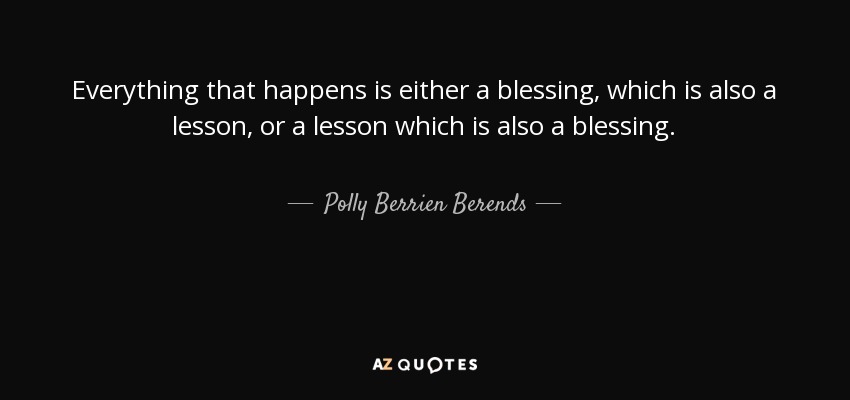How to Handle Your Triggers Like a Zen Master
Do you have triggers? For example, when someone says something that reminds you of a past negative situation, you react with fear, discomfort, sadness or other negative emotion?
It may not be obvious at the time exactly what you’re being reminded of, but your subconscious sure knows. You may even physically relive the not-so-great feelings.
“…sparks an intense emotional reaction, regardless of your current mood.”
– Healthline
I won’t lie and say tackling psychological and emotional triggers is an overnight process. However, there is a silver lining to trudging through your triggers.
Once you become actively aware and get a handle on them, you’ll feel less reactive and more in control of your words and actions.
You’ll ultimately have more self-control. Subsequently, you’ll express more confidence and kindness.
Who wants to unintentionally give others the power to influence one’s words and actions, anyway? But that’s unfortunately what triggers do. They are a type of reflex reaction associated with feelings—and often ones we’d rather forget about.
Calm Courage is supported by its audience. When you purchase through links on our site, we may earn an affiliate commission.
The path to Zen that’s achieved by managing your triggers is no walk in the park… but it’s worth it
I’m no Zen master. But I will tell you something. Achieving greater inner peace and self-control is near impossible without first doing some ‘darker’ introspection.
Our inner world comes complete with its share of past traumas and negative experiences. They are often the reasons behind triggers.
Ultimately, triggers are an aspect of our inner world worth exploring to find more Zen. When living with triggers, you’re bound to face fear, sadness and discomfort more often than you’d like.
Personally, there was a time in my life (more years than I’d like to admit) when I’d often find myself emotionally reacting to people’s words and actions.
My body tensed up. I found it hard to speak from a rational place. I had little control over my emotions when triggered.
I easily took things personally, or at least associated their words with my life. It would leave me feeling down and sometimes even attacked.
A single word could cause me to reminisce or spark a flow of uncontrollable feelings—at least for a few seconds.
As a result, I frequently struggled to shake off that triggered sensation, hindering my ability to concentrate on the emotions and results I truly desired in the current moment.
I had to put an end to it. I needed to take back control of my emotions and life.
Can you relate, at least to some degree?
Let’s start by examining what triggers are. We can then get into how you can actively manage them to live more peacefully and presently—like a Zen master would have no issue doing!
What are psychological and emotional triggers?
There are quite a few psychological and emotional triggers you may relate to:
- Trauma triggers: Cues that remind an individual of a traumatic event i.e. gunfire leading a retired veteran to experience anxious flashbacks.
- Memory triggers: Smells, sounds, or images that trigger memories i.e. a perfume triggering a memory of a loved one who passed away.
- Phobia triggers: Exposure to a phobia, such as a spider or extreme heights, which leads to severe anxiety.
- Social triggers: Triggers for individuals with social anxiety, such as being in a crowded room or speaking in public, or even small talk (I’ve been there).
It’s also significant to note that traumatic events that form triggers are not necessarily as traumatic as one might think. Particularly to someone on the outside.
For example, a cruel or insensitive comment is enough to form a trigger for some individuals.
Also, as you can likely tell, some triggers tend to take more work to get a handle on than others, such as phobia triggers.
For today, let’s focus primarily on emotional and physiological triggers which often overlap.
It’s important to note that triggers are highly individualised.
Also, I’m not a trained psychological professional. However, I am a human like yourself (hopefully), and I have put a lot of research, thought and personal experiences into this blog for you. I hope you relate and learn ways to get a handle on your triggers once and for all.
How to handle your triggers like a Zen master
Practise not taking things so personally
When you’re the main character in your life, it’s hard to disassociate from what happens around you.
Someone spills a drink next to you and it becomes about you.
Someone says “hi” to the person behind you, but it looks like they are saying hi to you, and it’s about you.
A call centre worker reads from a script, and it’s still about you (*facepalm*).
You get where I’m going…
There are many situations in life that we could take personally.
But it’s important to remember that there’s a difference between taking something personally and letting it get to you, and letting things slide and unfold as they should in the space around you.
Letting things slide and unfold naturally can be particularly hard when someone speaks to you about you. It’s tricky to not take what they say to heart unless you’re terrific at controlling your ego (not many are) and a pro at regulating your emotions.
That’s why it’s important to remember that we all speak from our own experiences and perceptions.
Thus, what one person deems harsh, another finds comfortingly truthful. And what one deems judgemental, another finds refreshingly observant. And so on.
So, when someone says something about you or that triggers you (but we’ve gathered that it’s not really about you), try to not take it personally.
However, this doesn’t mean you should let everything slide. By all means, stick to your ethics and opinions.
You don’t have to agree with everything everyone says (of course, that would be hard and a sign of people-pleasing).
Remember that you know yourself better than anyone. You know what you stand for. You know who you are, and that’s all that really matters at the end of the day–not anyone else’s perception or opinion of you. So what they say shouldn’t affect your emotional space to the point of discomfort or uneasiness.
Zap yourself back to the present moment
When triggered, it’s easy to get pulled down the ‘assumption lane’.
In other words, we begin to drift away in thought about a memory and become absorbed in the feelings that are being stirred up once more. Either consciously or subconsciously.
We now assume on some level this person has the same agenda as the last person or situation that triggered this feeling.
It’s funny how our emotions work! It’s as if they operate on a different plane of time.
It’s no fun being reminded of a past trauma or hurtful event. However, every time you are triggered, it’s an opportunity to face what formed that trigger in the first place and to heal. Also, to practise living out your true, present feelings.
Everyone deserves to heal from past pain or insecurities and step forward with more self-control and emotional clarity.
The best way to remedy the feeling of being triggered is to zap yourself back to the present moment. Here’s a snapshot of how this works:
- Take a metaphorical (or perhaps literal) step back from the person or situation.
- Take deep breaths.
- Recognise you’re being triggered.
- Be kind to and patient with yourself.
- Reassess the current situation.
- Bring your best to this new moment by being mindful of your own words and actions.
Practice this as many times as you need, in the moments when you feel yourself becoming triggered, until you are no longer reminded of that past situation and the associated emotions. You may have to do this many times until you begin to manage the trigger for good. But it’s an effort with positive results I’m sure you won’t regret.
Realise everything is a lesson

I love writing about and experiencing acceptance. It’s a key element to realising everything is a lesson.
When we accept what unfolds before us, such as how people act and what they say, or how life unfolds in general, we become better apt at living presently.
Acceptance merges into the teaching that everything is a lesson when we begin to recognise what exactly we can learn from every situation and person.
Sometimes lessons are small or ongoing. For example, gratitude is something that can continuously be expanded upon.
And when you think about it, triggers are just lessons in disguise. They’re lessons for our self-development, healing, and ultimately, our greater good.
We can reflect on a situation to discover the lesson.
Here are some good questions to ask to pin point the lesson:
- How can I tackle this situation better the next time?
- How can I treat this person better the next time?
- How can this help me develop my character for the better?
- How can this help me develop my values?
- How can this help me pursue my goals?
In a broader sense, life is a never-ending challenge that we can learn to enjoy. Acceptance and introspection are key aspects to help us build this essence of our character that can only lead to positive outcomes.
Realising everything is a lesson helps greatly with building courage and determination, peace of mind, and forgiveness–what a lovely bunch!
Practise active listening
What does active listening have to do with tackling triggers, you ask?
This part of the blog is pretty much a lesson in mindfulness, which I vouch for massively!
Being mindful is key to tackling triggers the moment they arise. That’s why I mentioned being mindful in the mini-exercise earlier that I hope you note down for later.
Active listening ultimately helps us strengthen our mindfulness muscle.
We all can be mindful, it just takes practice and awareness.
Instead of listening to respond, we can practice listening to hear what the other person has to say.
Not only does this take the focus away from ourselves if we’re having a particularly touchy and trigger-prone day, but it helps us to make the most of the present moment and give our best for the benefit of ourselves and the other person(s).
Being mindful ultimately helps us to avoid being triggered in the first place.
Be gentle and kind to yourself when triggered… but also ALWAYS
Whether it’s traumas or unhealthy mindset habits that fuel triggers, it’s important to be gentle and kind to yourself.
When triggered, anxiety often takes hold. In other words, our fight or flight response turns on. You will feel like either avoiding the situation or becoming defensive. i.e. you may shut down or say something you’d rather not have. Or at the least, quite obviously not be your best self.
We don’t want any of those outcomes. Instead, we want to remain calm and allow the triggered feelings to pass, right?
So, the next time you are triggered by someone’s words or a situation, remind yourself that you deserve patience and kindness as much as the next person and you need it always. This will help you be more mindful of the current situation and give yourself time to process and allow the trigger to pass.
Heal past wounds
Your ability to counter your triggers very much depends on your ability to heal past wounds.
As mentioned earlier, past wounds, traumas, and unhealthy mindset habits fuel triggers. So, we need to heal them to be able to manage and minimise triggers to the best of our ability.
This step is vital but it’s also the trickiest.
Everyone has things to heal from. However, it’s not always easy to tell what events are linked to the formation of triggers until you give yourself time to analyse and feel out your triggers.
Another way to go about it is to identify any past wounds you have and work on healing them, which, in turn, will help with handling and even removing triggers from your life.
Some questions to ask yourself to identify past wounds, traumas, and parts of your inner world in need of healing:
- Has someone hurt you?
- Have you experienced profound disappointment?
- Are you grieving?
- Do you experience anxiety daily?
- Do you feel insecure daily?
- Often feel angry or frustrated for no good reason?
Wow, that’s a lot to cover to identify what lies behind your triggers (hopefully not too much).
At the end of the day, we all deserve to heal and progress in life and not weighed down by the past.
Triggers are temporary when you put the effort in to manage them.
Find more Zen. Be that Zen.
Heal. Practice mindfulness until it becomes a healthy habit that replaces triggers. Breathe.
What are your thoughts on this topic? Leave me a comment below and I’ll get back to you.
Have you thought about listening to audiobooks to increase your emotional intelligence? Sign up for your 30 day trial of Amazon Audiobooks to listen to titles such as Darren Brown’s Bookcamp for Emotions absolutely free. No commitment – cancel anytime.
Follow me on social media for posts related to this topic:


